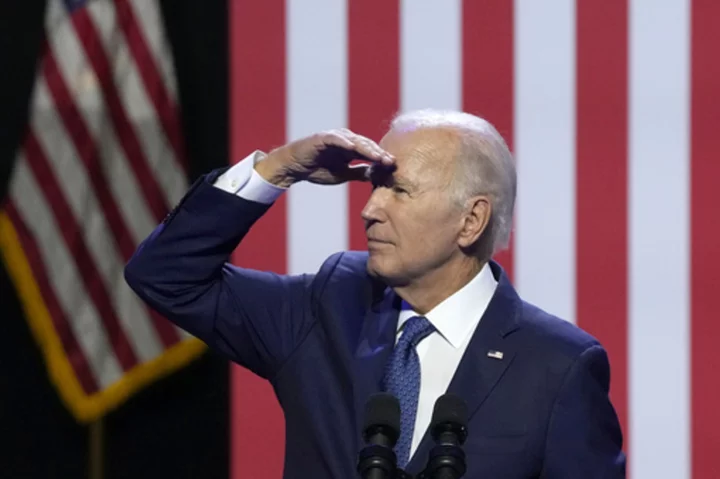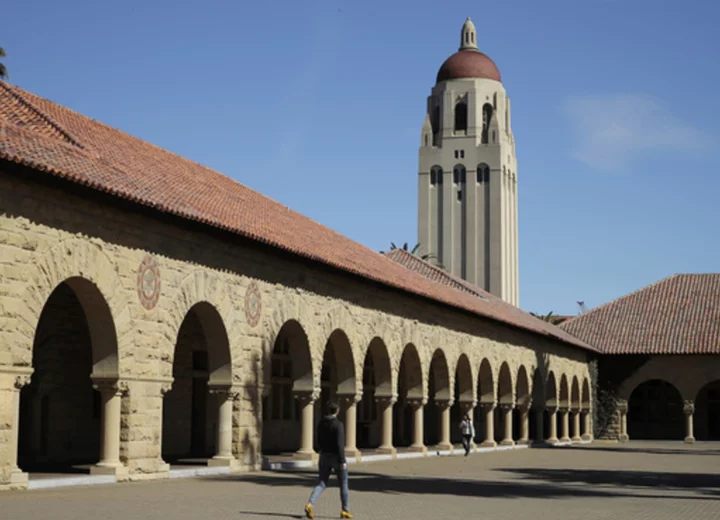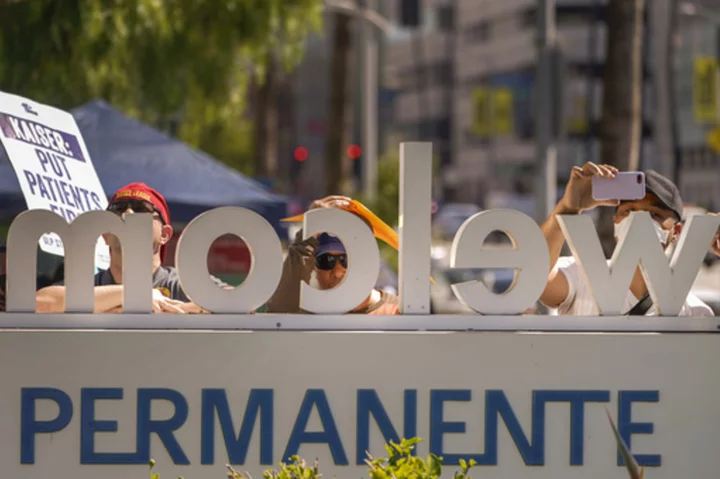WASHINGTON (AP) — Staring down a likely government shutdown, the White House wants to make sure any blame falls at the other end of Pennsylvania Avenue — specifically on House Republicans.
After all, it's House Republicans who have been paralyzed by their inability to pass a funding package, and Republicans who don't want to uphold a bipartisan spending agreement from earlier this year.
President Joe Biden is hoping the rest of the country will see things the same way. It's a murky proposition at a time of extreme political polarization, with many Americans dug into their partisan corners regardless of the facts of the matter.
A shutdown would arrive at a tenuous moment for Biden, who already faces low poll numbers and concerns about the economy as he seeks a second term in office, partially on the pitch that he offers steady stewardship in Washington.
If no spending bill passes Congress by the end of Saturday, federal workers stop getting paid, air travel could be ensnarled by staffing shortages and food benefits will pause for some of the country's most vulnerable families.
Asked on Friday if Biden should bear any responsibility for the shutdown, White House budget director Shalanda Young said “absolutely not" and accused Republicans of being cavalier with people's lives.
“The guy who picks up the trash in my office won’t get a paycheck," she said. "That’s real. And that’s what makes me angry.”
Anita Dunn, Biden’s senior adviser, blamed the looming shutdown on “the most extreme fringe” of House Republicans in a presentation to allies on Thursday. She said “we have to hold them accountable” and “make sure they pay the political price.”
Speaking from the White House, she criticized adherents of former President Donald Trump's Make America Great Again coalition — but she stopped just short of using the MAGA acronym.
“We’re not allowed to actually use the M-word here in the White House right now," said Dunn, referring to legal guidance intended to ensure compliance with the Hatch Act, which prevents political activity while administration officials are on the job. “But everyone here knows what I mean. It’s a four-letter word. It begins with M. It ends with A. It’s got an AG in the middle.”
Dunn added, "So those people are the ones who are refusing to do their job and shutting the government down for no reason.”
The current crisis is a sequel to the standoff over raising the debt limit earlier this year. House Speaker Kevin McCarthy, R-Calif., refused to authorize the federal government to issue debt unless Biden negotiated over spending cuts.
After resisting, Biden agreed to budget talks, reaching a bipartisan deal that averted a first-ever default. But now a group of House Republicans want even deeper spending cuts and they've threatened to oust McCarthy from the speaker's job if they don't get what they want.
So far, the White House has refused to negotiate, stressing that an agreement was already in place and House Republicans are refusing to honor its terms. Press secretary Karine Jean-Pierre said Friday that Republicans were “solely to blame” for any shutdown, calling that “a basic fact.”
Administration officials have also been highlighting that a shutdown would cause lapses in paychecks for military service members and delays in assistance for victims of natural disasters.
The White House messaging effort has received no shortage of unintended help from Republicans themselves, with moderates criticizing their hard-right colleagues.
Rep. Mike Lawler, R-New York, said “just throwing a temper tantrum and stomping your feet — frankly, not only is it wrong — it’s just pathetic.”
Even McCarthy acknowledged recently that some members of his caucus “just want to burn the whole place down.”
At a Wednesday fundraiser outside San Francisco, Biden said McCarthy cares more about protecting his job as speaker than keeping the government open.
“The fact is that I think that the speaker is making a choice between his speakership and American interests,” Biden said.
While Washington endured partial shutdowns as long as 35 days during Trump’s presidency, Biden warned his donors that Republicans could shutter the government for weeks, if not months.
“It would be disastrous for us, especially if it became long-term,” he said.
Romina Boccia, a veteran of Washington fiscal debates and the director of budget and entitlement policy at the Cato Institute, said this situation is much different than the government shutdown in 2013.
At that time, Republicans were united around trying to block implementation of the Affordable Care Act. And even then, it didn’t work. Once the shutdown happened, Boccia recalled, “it didn’t provide any more leverage," and “Republicans caved and reopened the government when they learned the hard way that they weren’t going to get their way.”
This time, she said, “it’s not clear what they’re trying to get out of a government shutdown. It just seems dysfunctional all around.”
Some polls conducted ahead of the expected shutdown suggest Biden and Democrats in Congress could bear a substantial portion of the blame if a closure occurs. But U.S. adults generally have two conflicting priorities regarding the federal budget.
About 60% of them say the government spends too much money, but majorities also back more money for Social Security, health care and infrastructure, according to a survey by the Associated Press and NORC Center for Public Affairs Research. This enables some Republicans to say the public backs them on cuts, but it also justifies spending on programs that are projected to contribute to higher deficits in the years to come.
The likely shutdown overlaps with Biden ramping up next year's reelection campaign. For the past few months, the president has taken full ownership of the economy's performance as inflation has dropped while unemployment has stayed low.
But an emerging set of risks are on the horizon and most U.S. adults still feel pessimistic about the country's direction.
Mortgage rates are at a 22-year high. Oil prices are nearly $91 a barrel, pushing up the cost of gasoline. Unionized autoworkers are likely entering a third week of strikes. Student loan repayments are restarting. Pandemic-related money for child care centers is set to end, potentially triggering a set of closures that could hit working parents.
A government shutdown would be another dose of chaos that could cause pain for millions of households. White House officials who are ready to blame Republicans say they'd rather see a shutdown avoided.
“I'm still hoping," Young said Friday. “I'm still remaining an optimist.”









